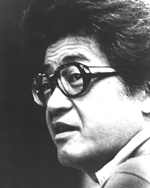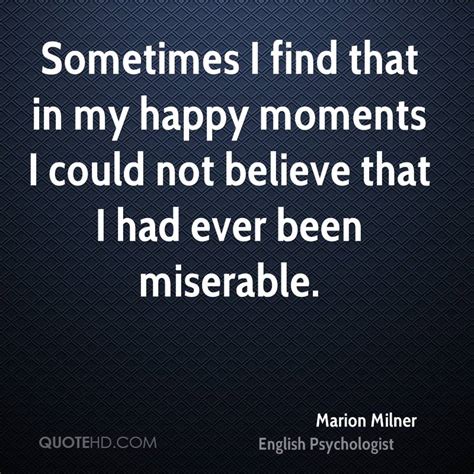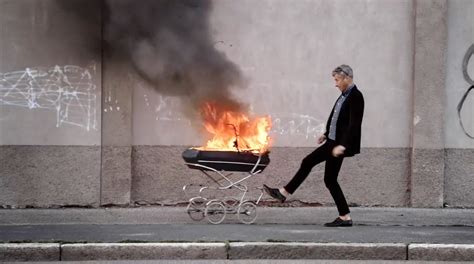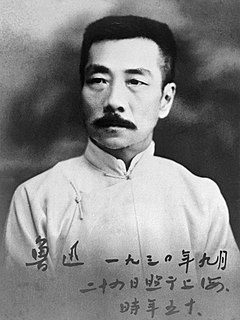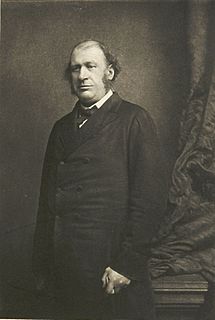A Quote by Blaise Pascal
All I know is that I must soon die, but what I know least is this very death which I cannot escape.
Related Quotes
Suicide is an escape from life. What is life? An escape from death. This means that each of us must die twice. There is the death waiting for us ahead, and the death that comes pursuing from behind.... Once you are free at least from the death that comes pursuing you, you can relax and enjoy life as you go along.
Thus we cannot escape the fact that the world we know is constructed in order to see itself. This is indeed amazing. Not so much in view of what it sees, although this may appear fantastic enough, but in respect of the fact that it can see at all. But in order to do so, evidently it must first cut itself up into a least one state which sees, and at least one other state which is seen.
We are left with nothing but death, the irreducible fact of our own mortality. Death after a long illness we can accept with resignation. Even accidental death we can ascribe to fate. But for a man to die of no apparent cause, for a man to die simply because he is a man, brings us so close to the invisible boundary between life and death that we no longer know which side we are on. Life becomes death, and it is as if this death has owned this life all along. Death without warning. Which is to say: life stops. And it can stop at any moment.
Sweet is true love though given in vain, in vain;
And sweet is death who puts an end to pain:
I know not which is sweeter, no, not I.
Love, art thou sweet? then bitter death must be:
Love, thou art bitter; sweet is death to me.
O Love, if death be sweeter, let me die.
...
I fain would follow love, if that could be;
I needs must follow death, who calls for me;
Call and I follow, I follow! let me die.
The woe of mortality makes humans God-like. It is because we know that we must die that we are so busy making life. It is because we are aware of mortality that we preserve the past and create the future. Mortality is ours without asking--but immortality is something we must build ourselves. Immortality is not a mere absence of death; it is defiance and denial of death. It is 'meaningful' only because there is death, that implacable reality which is to be defied.
In order to live, man must act; in order to act, he must make choices; in order to make choices, he must define a code of values; in order to define a code of values, he must know what he is and where he is – i.e. he must know his own nature (including his means of knowledge) and the nature of the universe in which he acts – i.e. he needs metaphysics, epistemology, ethics, which means: philosophy. He cannot escape from this need; his only alternative is whether the philosophy guiding him is to be chosen by his mind or by chance.
James, you are all the family I have. I would die for you. You know that. I would die without you. If it were not for you, I would be dead a hundred times over these past five years. I owe you everything, and if you cannot believe I have empathy, perhaps you might at least believe I know honor--honor, and debt--
But how to know the falsity of death? How can we know there is no death? Until we know that, our fear of death will not go either. Until we know the falsity of death, our lives will remain false. As long as there is fear of death, there cannot be authentic life. As long as we tremble with the fear of death, we cannot summon the capacity to live our lives. One can live only when the shadow of death has disappeared forever. How can a frightened and trembling mind live? And when death seems to be approaching every second, how is it possible to live? How can we live?
until you have, once at least, faced everything you know - the whole universe - with utter giving in, and let all that is 'not you' flow over and engulf you, there can be no lasting sense of security. Only by being prepared to accept annihilation can one escape from that spiritual 'abiding alone' which is in fact the truly death-like state.
We do not know what awaits each of us after death, but we know that we will die. Clearly, it must be possible to live ethically-with a genuine concern for the happiness of other sentient beings-without presuming to know things about which we are patently ignorant. Consider it: every person you have ever met, every person you will pass in the street today, is going to die. Living long enough, each will suffer the loss of his friends and family. All are going to lose everything they love in this world. Why would one want to be anything but kind to them in the meantime?
Imagine an iron house without windows, absolutely indestructible, with many people fast asleep inside who will soon die of suffocation. But you know since they will die in their sleep, they will not feel the pain of death. Now if you cry aloud to wake a few of the lighter sleepers, making those unfortunate few suffer the agony of irrevocable death, do you think you are doing them a good turn?
Each must act as he thinks best; and if he is wrong, so much the worse for him. We stand on a mountain pass in the midst of whirling snow and blinding mist through which we get glimpses now and then of paths which may be deceptive. If we stand still we shall be frozen to death. If we take the wrong road we shall be dashed to pieces. We do not certainly know whether there is any right one. What must we do? Be strong and of a good courage. Act for the best, hope for the best, and take what comes. . . . If death ends all, we cannot meet death better.

